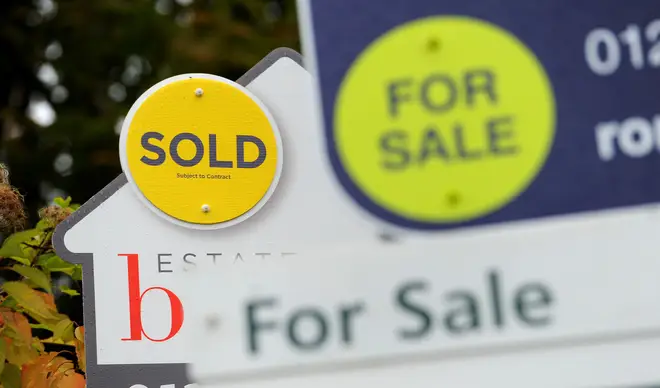
Iain Dale 10am - 1pm
31 March 2020, 07:44

With Covid-19 having a huge impact on society and the country going into virtual lockdown, what will this mean for property transactions?
With employees working from home where possible and thousands of people self-isolating what happens if you were in the middle of buying or selling a property? And what will be some of the main issues?
[LIVE NEWS: Coronavirus as it happens]
One leading property lawyer has said both buyers and sellers could be hit by a range of issues due to coronavirus and the Government's lockdown.
Read more: Can I drive during the UK coronavirus lockdown?
Here's what we know so far.
Problems obtaining searches because Local Authority offices have been closed
Problems with the banking system meaning approvals and transaction take longer
Possible requests that properties are deep cleaned by buyers prior to moving in
Delays in obtaining signatures on documents due to problems with the postal system
Read more: Prime Minister Boris Johnson tests positive for Covid-19
Delays in issuing mortgage offers by lenders because they are working with a skeleton staff or from home
Issues with removal companies who may not be available due to staff self-isolating
Closures of estate agencies affecting handover of keys
Sellers being unable to move out of a property due to self-isolation
Bhavesh Amlani, head of property at Roythornes Solicitors, said: “We have received a number of questions about conveyancing transactions during the crisis but the most common one is simply: will coronavirus affect my property transaction?
“The inevitable answer is yes. There is currently disruption to the entire system so there is likely to be some effect on your transaction. However, what that is and what you can do about it very much depends on the situation and the stage your transaction is at.
Read more: How does the coronavirus home testing kit work and when can I buy one?
“There are several ways that your transaction could be affected. There are multiple parties involved in the buying and selling of a house and the current situation means any, or all, of the parties could be affected by delays and complications."
Mr Amlani outlined some of the solutions which lawyers could use to help both buyers and sellers.
Read more: Are the police stopping people who go outside during the Covid-19 lockdown?
He said: “As lawyers we are bound by the rules of the Law Society, which state that all solicitors act with courtesy, cooperate with third parties, maintain high standards, and deal with others in a fair and honest manner.
“In pure legal terms, if contracts have been exchanged on a transaction and the transaction does not take place then the party(ies) who have been unable to complete would be in ‘default’. However, there is the very real possibility that in these times the non-defaulting party (most likely the buyer of the property) will take a ‘fair’ view.
“Whilst the non-defaulting party could serve a ‘notice to complete’ i.e. force the transaction to take place, we feel this will be unlikely in most cases. We hope patience and common sense will prevail. "
Read more: Coronavirus symptoms - What are they and what is the risk of Covid-19 in the UK?
Exchange contracts, with a completion date much later in the year - this would commit both parties to the transaction but give some time so that the completion can take place once the outbreak is over
Read more: Coronavirus: Beard sanitiser sales spike after NHS urged staff to shave
Put a hold on exchange – so that you get all the paperwork in place but do not exchange on the property before the situation becomes clearer. Of course, this would mean there is no legally binding duty on either party to undertake the transaction, and so relies on the trust of all those involved
Read more: How long does Covid-19 live on surfaces, and is it safe to get overseas post?
Exchange and complete simultaneously – again this would rely on trust between the parties, but it would ensure that there is no duty on either party until both sides were ready and when they were, the transaction would be undertaken quickly
“My advice therefore would be to speak with your solicitor. They not only have access to the latest Law Society regulations and guidance notes but will be aware of the current situation both on your transaction and those up and down the chain,” Mr Amlani said.